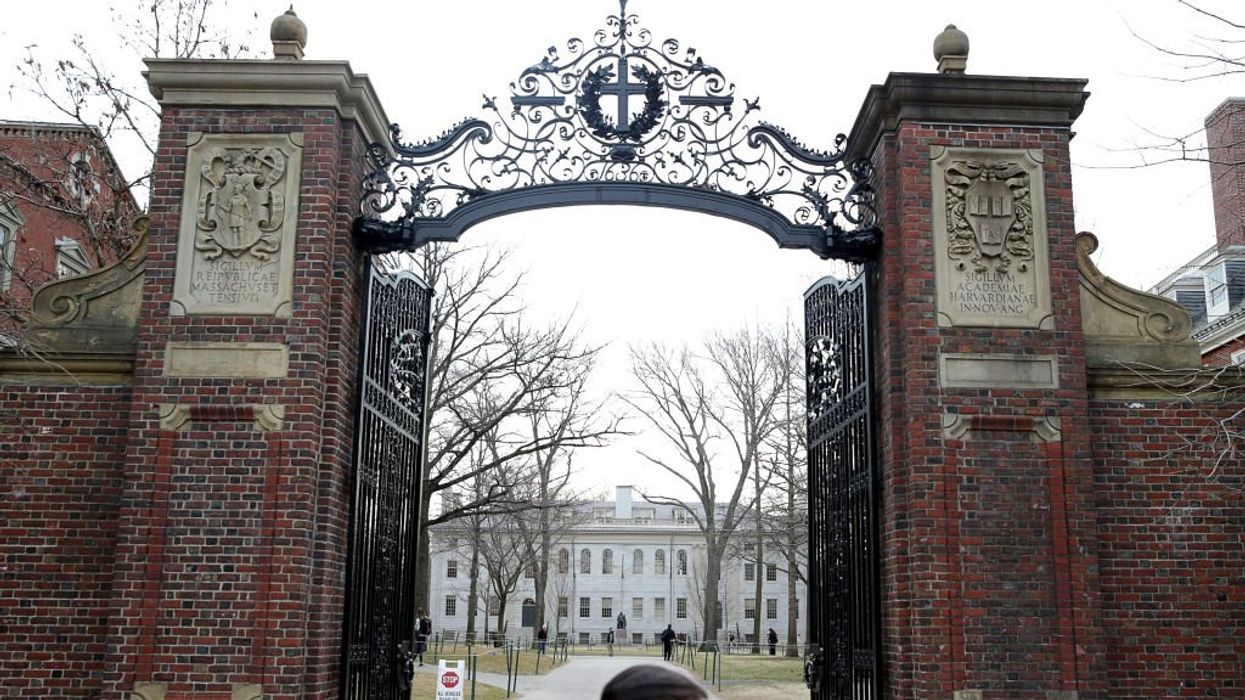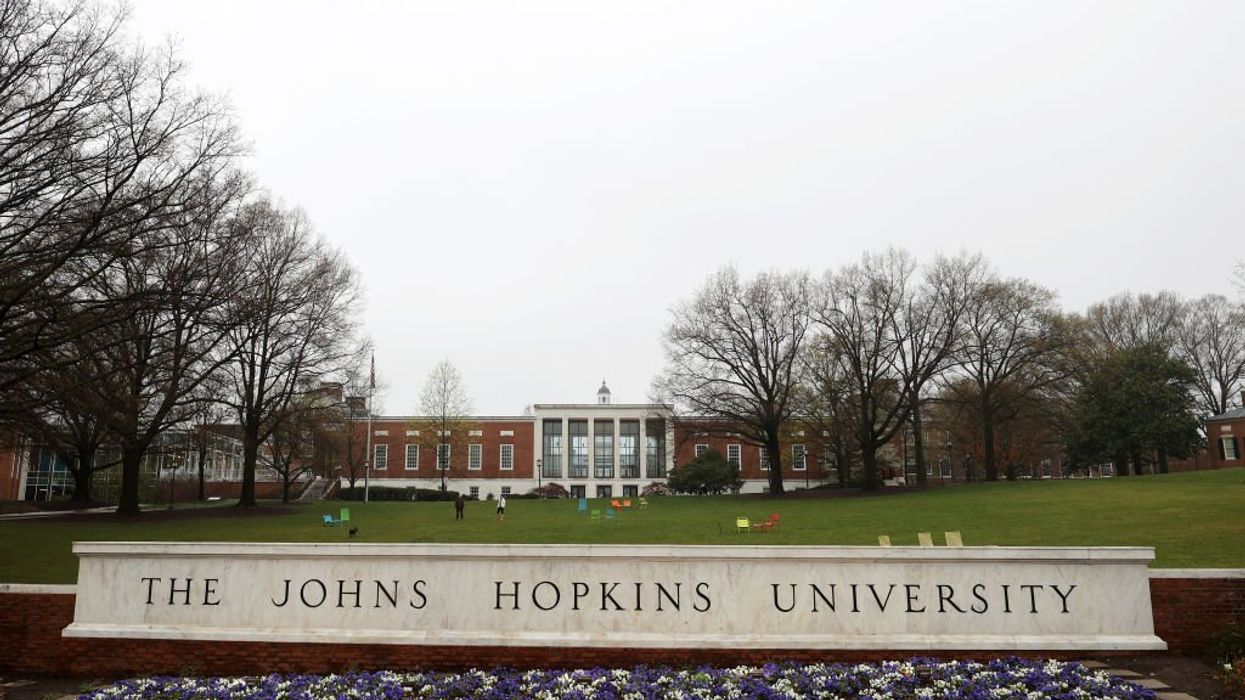UPDATE: American Airlines has tweeted a response to Glenn on Twitter:
@glennbeck We’re sorry for your experience. We take these matters seriously and are investigating. We'll stay in contact with your staff.
— American Airlines (@AmericanAir) September 4, 2012
Glenn's response:
I am investigating whether I am going to do another hour on @americanair.
— Glenn Beck (@glennbeck) September 4, 2012
Original Story:
GLENN: I want to spend some time giving you knowledge on, you're close to winning. In fact, you're so close to winning, the left and the uber left doesn't even know how to deal with it, and they're getting very, very angry. I've lived in New York for, what, five years? I've seen ‑‑ I've seen New York. I've seen the ugly side of New York, I've seen the good side of New York, but I have not seen what I have seen in the last weekend. In fact, my wife said she's never going to New York again. It was ‑‑ it was quite amazing.
I want to tell you a little bit about my weekend and I want to personally thank American Airlines for bringing to my attention that they don't mean "American Airlines." They mean "liberal American Airlines" apparently. But let me start here. Do you remember when Clint Eastwood got up on stage and he said, "You know there's a lot of ‑‑ there's a lot of people in Hollywood. They just don't make a big deal out of it." Now why? I've spent a lot of time with a few people in Hollywood that are very big names, and they'll tell you why. They don't have five Oscars to their name. They don't have Clint Eastwood's reputation. They don't have Jon Voight's reputation where it's Jon Voight. You want Jon Voight? You gotta take Jon Voight.
PAT: And you know what was interesting about Eastwood's speech was that he only mentioned himself and Jon Voight.
GLENN: And Jon Voight. That's it.
PAT: Because those are the two biggest.
GLENN: They don't say it. Now why? Why? Because they know they'll never work again. It's blacklisting, and it's wrong if you're a suspected Communist or a confirmed conservative. Blacklisting is wrong.
I want you to ask yourself, what have we become as a nation? If you have a different opinion, you are boycotted. You're shouted down. You're called worse names than you can possibly imagine. Your home or your business is targeted, sometimes by union thugs, sometimes by street gangs. Your church will be smeared. You'll be made to feel like a pariah in every situation, and they'll do it all in the name of diversity.
After a weekend in New York City, I remembered why I was so glad to move out of New York City. It started for me on a Friday night, this last Friday at a barbecue restaurant. Now why my daughter who lives in the city thought that coming from Texas we should go have barbecue in New York City is beyond me, but we did. As we walked in, my wife said, oh, my gosh, this is so‑and‑so very famous, you know, barbecue couple that do this barbecue thing, you know, on TV. And I said, "Oh, okay." She said, "It's supposed to be really good." Well, I have to tell you, the look that I was given by those in charge at this restaurant was, how dare you even come in here. It was quite amazing. I said to my wife as we were walking up the stairs, I said, this isn't going to go well. And she said, no, this was really a mistake. This is a minority‑owned shop. Was that the line that I dared to cross? No? No, it couldn't be because there were white people in there. So it must be something else besides my character. It's amazing to me. One would think that ‑‑ you wouldn't want to shun people that might have diverse opinions. Maybe they could put a second door in or another entrance in for people like me.
The next morning we had breakfast in the heart of the land of diversity. I was openly mocked by the patrons, and my wife was begging to leave as she heard the wait staff and management gasp in horror that they actually had to serve me. Lunch was no different.
New York City has become a very vile and hateful place, if you happen to have a different opinion. It's sad. Because I don't see New York as a liberal city. I see New York as one of the greatest cities in America. Not a liberal city, but a city that has a lot of great things in it and a lot of great people in it who may disagree with me, may not.
I've lived in Texas in the last few months and I had forgotten why I needed my security detail. It's funny because as I compared New York and Texas, there's not everybody in Texas agrees with me. There's a lot of liberals in Texas. It's funny. We all have a neighbor here in Texas who is an Obama supporter. All of us do. But we're neighbors first, Texans second, and Republicans and Democrats somewhere way down on the list.
On the way home I flew American Airlines, a Texas‑based airline. I, unlike all of the other passengers, was not offered the option of courteous service. I don't know why. Did I have to pay more than I paid for my tickets? Is that something that you have to select now you? My flight attendant nearly ‑‑ merely barked the word "breakfast" when he came to me. When others were politely asked if they cared for anything to eat and given the choices, I was just barked at. When he delivered a soda, he slammed it down so hard, I hesitated to even open the can for fear that it would spray all over other passengers in the cabin. By the way, the other passengers, nobody else had to open their can. He opened it and poured it for them. Never once did he look me in the eye. Never once did he offer a kind or even a neutral word to me. I had service unlike I have never had ever before in my life, and I have had rude service before. I lived in New York City. I have never had service that was specifically designed to make me feel subhuman. Oh, I had it. He put on quite a show as he fawned over the other passengers proudly and loudly performing his life story about being a former Israeli soldier and how he was so proud of the very liberal cities in America.
I watched him and I wondered: Does this make him feel better somehow? It's sad because I think it did. As I sat there, I wondered how many things we would actually agree on, how many things did he actually believe about me that aren't even true. I wondered if he was ever made to feel like a second class citizen before. I wondered if he had any friends and family in the dark years of Europe that made them feel less productive. I wonder if his friends and family ever felt like they were less than a welcome member of society because of their faith or who they were or what they believed.
I had lots of time to ponder things. I wondered what I had done to this flight attendant from American Airlines that caused him this much pain that he as a grown man felt justified and uplifted by taking his pound of flesh. What had I done to him personally? Did I wrong him personally? Or was he just taking his pound of flesh and acting out for the collective? Would he tell stories later in the day about how he treated me? Would he revel in those stories as he told his friends? Would he laugh ‑‑ would they laugh and jeer with him and tell him how proud they were of his behavior? I wondered. I wondered if a guy like this flight attendant for American Airlines, if he were in a group of like‑minded people and that group of people were in power. I wonder if he and his friends would feel it rational to march me through the streets with a sign around my neck mocking and frightening anyone away who might want to stand with me. I wondered. Surely not. This somehow was different. This was just a small indignity.
I prayed a lot on the plane. I, as a man, wanted to say something but figured we'd end up landing in a city that I didn't want to be in. I just wanted to go home. So I didn't say anything. And then I prayed. I thought about Billy Graham. I thought the leader of my church a lot. I thought about the teachings of Jesus. And gee, none of them really could break through because I was filled with a lot of anger. But I got up and I decided, what is the one thing I can say that will understand, so he can recognize that I recognized his point but also say something true, and kind? And I decided after the weekend that I had had in New York, where nobody really treated my children any differently than they did me, they were acting for the collective on the collective, I realized he was the only man that treated my children differently than me. While he treated me as a subhuman, he treated my children nicely. So as I was deplaning, as he was standing next to the pilot, I said to him, "I want to sincerely thank you for not treating my children the way you treated me." His response? "It was my pleasure. You deserved it." The pilot didn't say anything, nor did the other passengers, but they probably didn't know what was going on. I remembered yesterday, as I was driving home from the airport, the airlines used to make an announcement at the end of the flight that says, "We know you have a choice in airlines and we're glad that you chose us." I wondered if American Airlines was happy that I chose them. Are they happy that other conservatives even fly in their planes? Are they glad to be based in Texas, or is this just an unfortunate stopover on the way to one of those many liberal cities their employees are so proud of? I know yesterday I did have a choice and I chose wrong. I chose to fly with American Airlines. I do have a choice. And my family will never choose American Airlines again. I and my family will choose another carrier. If this is the kind of people that American Airlines likes to hire in the service industry.
You see, I grew up in a family‑run business. "The customer is always right" is what my father taught me. I wasn't trying to make a point. I just wanted to be treated as a human. Apparently that's not the way at American Airlines anymore, unless they vote the way you do, unless you vote the way they do. I lost my cool as I walked off the plane, as I was told I deserved to be treated worse than any airline attendant would have treated a dog. I shouldn't have lost my temper.
Last night I prayed that I would be forgiven for all the things that I may have done to divide, and to be given guidance on how to unite. I have made mistakes. We all have. We all have choices to make, and I have tried to make the highest possible choice. No matter my choice yesterday, I can make a new one today. We all have to if we're going to survive. No matter who wins, tough times are coming. Like it or not, we're in this one together. We have to be better than we have been in the past, and we have to expect it not from others but also from ourselves.
We are not the side shouting down, indoctrinating kids at institutions, making them fear, expressing a different opinion, or failing their class. All the while their professors are hiding behind tenure to protect intellectual diversity. We're not blacklisting those who have a different opinion or a lifestyle. We know that actors lead lives that don't reflect ours. We don't shun their movies. We don't boycott their movies. We connect where we can and the rest is up to them.
Hillary Clinton said during the last election that she was tired of being made to feel un‑American just because she disagreed with this president's opinion. I remember it clearly. I'll go a step further: I'm tired of being treated as a criminal, a disease, mentally challenged, stupid, or subhuman just because I happen to believe that the founders weren't racists, that the Constitution was and still is inspired and the greatest document for government ever created, that the military is not full of a bunch of baby‑killers, or that we shouldn't spend the money that we don't have, or that we should stick up for the little guy, the small business owner, that the corrupt businessman should go to jail and that capitalism is still the best system to lift people out of poverty. I will not shy away from saying proudly that I believe in God, that I believe churchgoers in all churches get a bad rap. We are good people and the reason, Christians are the reason the Nazis were stopped, slavery was stopped, and man was eventually set free all over the planet. It was Christians that did it. I'm sorry that you might find that offensive, or that I ‑‑ that I go to church and you find that offensive, or that I happen to go to the wrong church and you find that offensive. But I will not apologize for what I believe in or who I am. Because what I believe in compels me to stand up for you and your right to be who you are. I'd just like to be treated with a little dignity along the way. Thank you, American Airlines, for making my next flight an easier choice.
















